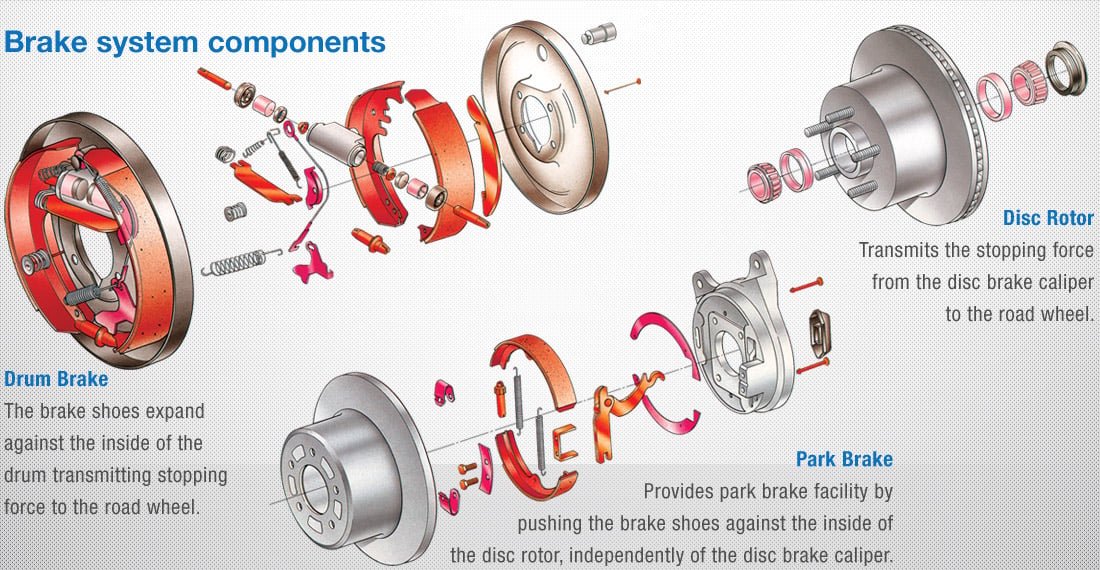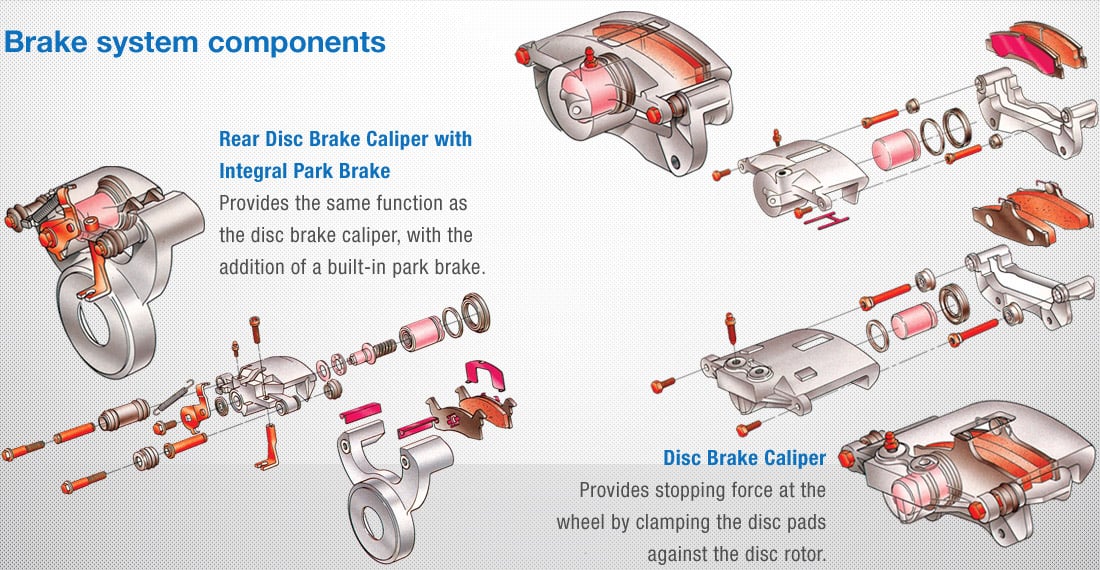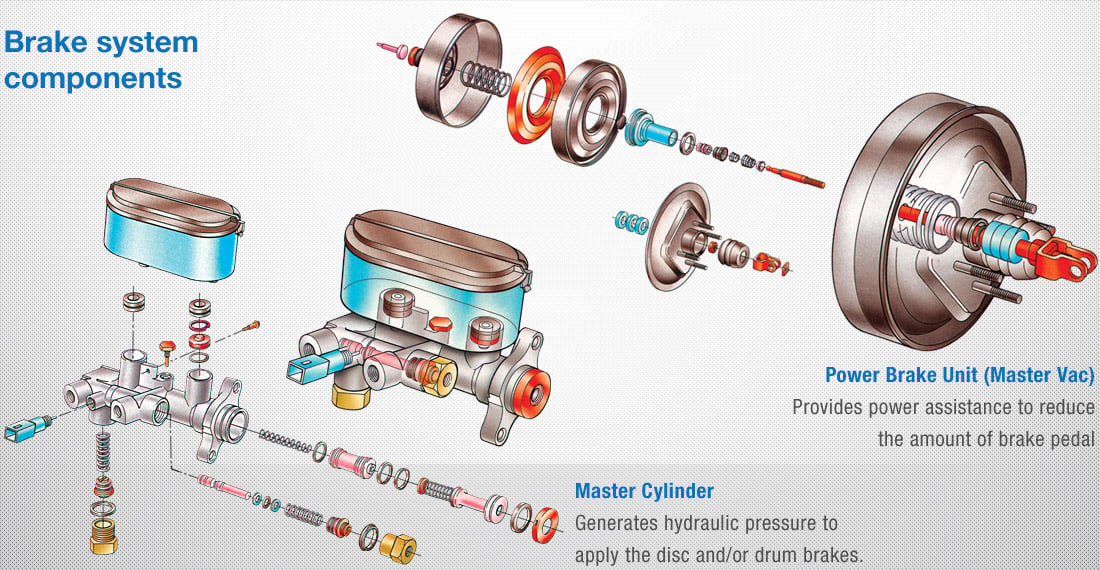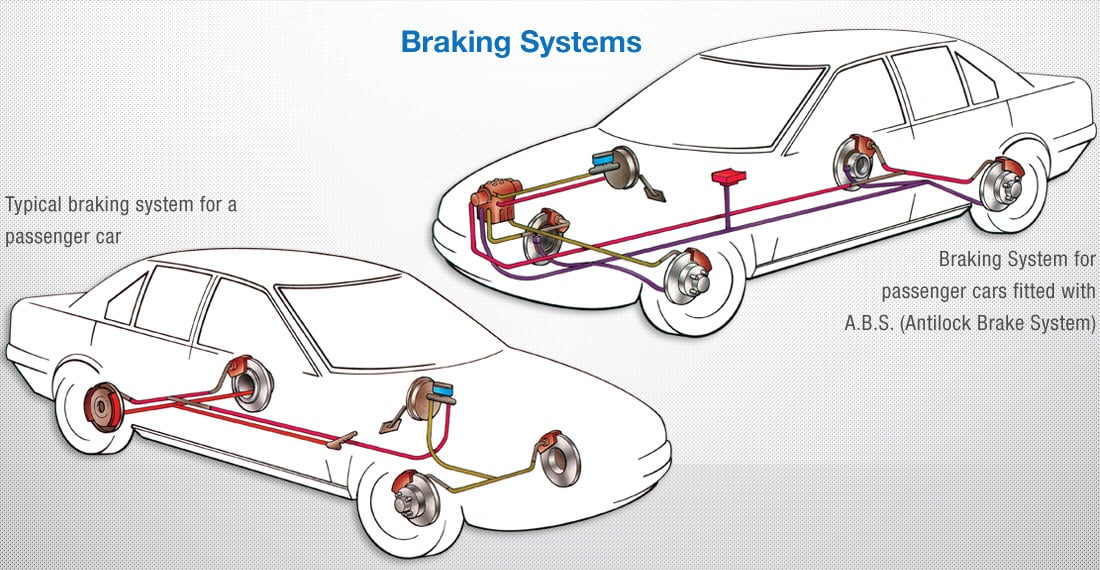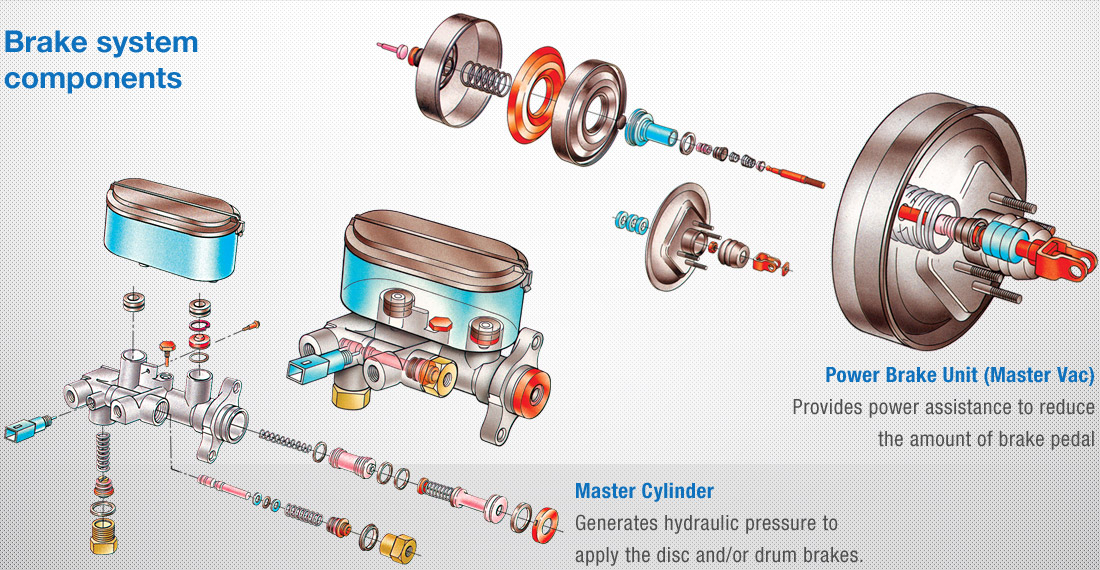
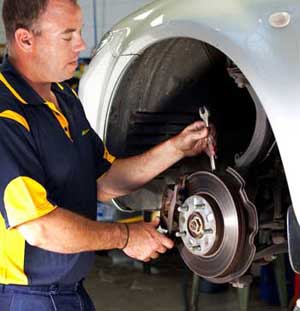
Brakes are devices which stop something from moving, usually by applying force to a moving part that then converts the energy of movement into heat. In the case of cars, there are two main types of brake, namely drum and disc brakes, and both of these work by applying pressure to part of the wheel assembly, thus impeding movement. Ever since mankind first started moving around in carriages the quest has been to find the most effective way of stopping, and to this day improvements in braking technology continue.
What are the two main types of brakes?
As far as modern day motorists are concerned there are really two main types of brake, namely disc and drum. Although the basic principles and physics are the same, the actual technology has some key differences including:
- A so called drum brake is a drum shaped device with brake pads inside it that expand and apply pressure to the drum
- This pressure creates friction, which in turns impedes movement
- One of the side effects of friction is heat, which is why brakes can get very hot if used often
- A disc brake is a similar idea, only the pads pinch a rotating disc that is part of the wheel assembly instead
- Much like drum brakes, discs can generate a lot of heat due to the friction being generated
- A brake that has pads that contract around the outside of a drum is sometimes known as a band brake
Both of the two main types of car brake systems rely upon applying force to a part of the wheel assembly to create friction, and therefore impede movement.
Improving how brakes perform
Your brakes are a critical part of your vehicle's safety equipment and therefore need to be well maintained. The key is to ensure that the pads, or shoes - the parts which make contact with the disc or drum to help create friction - are not unduly worn. If they become too worn, they will slip over the surface they are meant to impact with, creating very little friction, and therefore minimal stopping power. Brakes also need to be adjusted regularly so the pads align properly. Dirt, especially oil residue from the road can also adversely affect how your brakes work. Effective brakes need to be clean, adjusted properly and not too worn.
Ensuring your brakes work properly
Considering how important brakes are in terms of being able to stop as effectively as possible, and how vital this is in the overall context of safety, it is advised that you make sure they are inspected and serviced regularly by experts. Excessive wear, bad adjustments and the build up of dirt and oil can all compromise your brakes' effectiveness. Regardless of what type of brakes your car has, there can be no shortcuts when it comes to safety.
There are a variety of different reasons why you may hear a squeaking or squealing sound coming from your vehicle's brakes, depending on the squeal's pitch, length and persistence. You don't want to take any chances when it comes to your brakes. So, if the noise persists, please bring your car in to see your friendly, local mechanic. Some of the other reasons your brakes may be squeaking are:
- Worn brake pads: The squealing sound is intentional; the manufacturers designed the brakes with a metal indicator that emits a high-pitched warning when they approach minimum thickness. If the noise persists, you should get your brakes checked right away otherwise, the squeaking will turn to grind, and that's much more expensive.
- Overnight moisture: If you're lucky, it may just be a little bit of ruse on your rotors after a night of rain and therefore is just temporary and should disappear after a few brake applications - problem solved
- Dust or debris between the pads and rotors: Mud, dust, or other debris can build up on the surface of your brake pads when you leave your vehicle sitting around for an extended period of time or in various driving conditions. If this is the case, the problem can be fixed easily with a quick spray with a cleaner.
- Lack of lubrication on drum brakes: If your vehicle has drum brakes, a lack of lubrication on their contact points can cause a squealing sound. Without lubrication, the shoes start to scrape against the braking plate. It is a tell-tale sign if you can see the bare metal exposed.
There are many reasons why your brakes may be grinding, but it's never a good thing. So, the sooner you catch the problem and fix it, the less extension and costly the repair will be. Some of the reasons you may hear the grinding sound are:
- Lack of brake pads. The brake pads wear, leaving metal grinding against metal and can be heard when you stop or slow down. Another tell-tale sign is if you previously heard any squeaking from your vehicle.
The brake disk and the calliper rub together. You'll usually hear a sharp grinding sound as you brake or feel the brake pedal rumble as you step on it. - Stuck rocks or debris. It's normal for components to catch dirt, dust and grime. When this happens, you may hear squeaking temporarily. However, sometimes small rocks and objects from the road can get stuck between the calliper and the rotor. You may hear grinding when driving at a constant speed.
- Anti-Lock Braking System (ABS): In a situation where you suddenly slam on the brakes, the ABS will automatically activate to prevent your wheels from locking up and skidding. The grinding should stop once you take your foot off the pedal.
- Unlubricated Caliper Bolts. Caliper bolts will grind when braking if there is a lack of lubrication.
To ensure you are driving safely on the roads, we recommend you have your vehicle checked out by a professional if you notice anything unusual or have any safety concerns.>
Mechanically speaking, cold temperatures don't freeze a vehicle's brakes. However, they can cause your brake rotors and pads to wear out faster and develop cracks allowing the outside elements to get into the gaps in your brake pads.
The water, with a much higher freezing point of 0 Celcius, will then find its way into your brake lines and cause damage to the braking system.
The short answer is yes.
There are various reasons why your brakes may feel locked:
- The piston sticks within the calliper
- The brake pads may have seized
- On a vehicle with single-piston callipers the slide pins can seize
Pads have become stuck to the disk
Your vehicle's brakes are one of the most crucial safety features. They must work to full effect for your safety and those of your passengers. If you start seeing signs that your breaks aren't working efficiently, it's critical that you have them checked as soon as possible.
Brake pads and brake rotors wear over time. On average, you should change them between 50,000-80,000 kms or roughly every 4-6 months. However, the wear on your brakes depends on the materials they’re made from and your own personal driving habits.
If you're finding your new car brakes hard to push down you should immediately get them rechecked by a professional mechanic. While there is a chance it feels 'harder' because you have become accustomed to your old brakes, it's much more likely there is something wrong with your brake system. Some of the common causes are:
- Bad brake booster: Your brake booster needs a vacuum source to operate. Insufficient vacuum pressure being supplied to your brake booster can cause your brakes to feel hard to push down.
- Seized calliper: Brake callipers are needed to push your brake pads against the rotor to stop your vehicle. If your brake callipers become 'stuck', they can't engage and position your brake pads correctly, leading to a stiff brake pedal.
- Cracked vacuum hose: A vacuum hose connects your brake booster to the engine and draws air through it to create a vacuum. Sometimes the rubber vacuum hoses can crack at their connecting points, leading to a loss of pressure and a stiff brake pedal.

